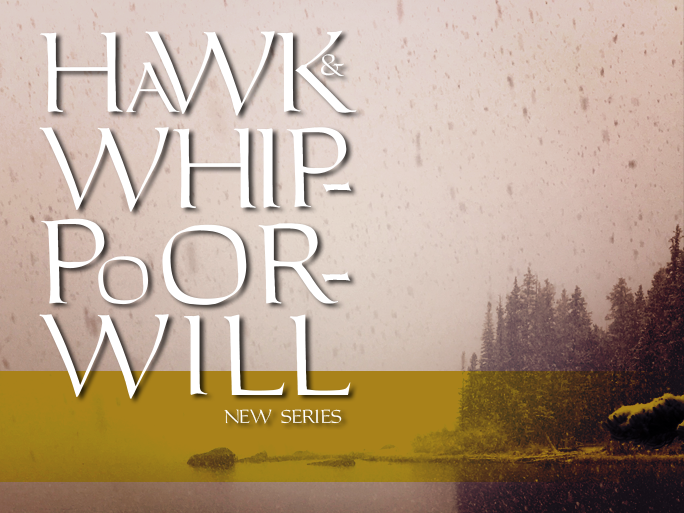I
had a pleasant surprise – the editors and staff of Hawk andWhippoorwill poetry journal have nominated my poem “How a vine
staves off eviction” for a Pushcart. The poem was in their Summer
2019 issue. Hawk & Whippoorwill, published in Boston at summer
and winter solstices, focuses on the relationships between nature and
humankind.
Many
of my poems were written with the idea to reflect human life through
the natural world. Besides vacationing in the Northern Woods as a
child, I used to go on fishing and apple picking excursions with my
father to southern Wisconsin. My dad expressed what many say, that
he felt his religion when he was in nature. He also liked the computer
and kept up weekly email contact after I got on the internet and had
poetry published there. I was surprised, during his last year, when
he wrote wondering if I had a new poem for him to read there.
How
could religion not be a point to ponder? Having a fascination for the
first and last books of the Bible, I concluded in the 1990's that
environmentalists were doing God's first mandate. They were taking
care of the garden while too many were living outside of it. I tried
to write poems as if they might express a theology but of course that
failed. Poetry is an art form and, I felt, true when it is concrete
and in perspective.
I wished I'd photographed the yard tree hosting a vine that grew into the form of a man standing on an upper branch. However that happened, the sight inspired a poem as it might have inspired visual art.
I wished I'd photographed the yard tree hosting a vine that grew into the form of a man standing on an upper branch. However that happened, the sight inspired a poem as it might have inspired visual art.
 |
| Image by Jolee G @ FreeDigitalPhotos.net |
I don't often refer to myself as a poet though I've had many poems published. I liked poetry and early, made a little book called “My Favorite Poems.” My own poem inclusion disappointed. I remember going to my fifth grade teacher in despair because I blocked on a poem. She suggested that I start with a different subject. So I wrote a narrative science fiction poem, finding that her suggestion worked. I was comfortable with stories in prose.
And
I was to become more taken up with flute playing so that I had to
consider a performance career. Many years later, I opened a drawer of
paper documents, bank and such, but also a cache of poetry I sent as
application to the University of Minnesota writing program. I'd read
much more contemporary poetry and finally re-read what I never
submitted for publication. I thought, oh, even though this stuff was
inspired by Tess Gallagher, it is something different in rhythm and
resonance. It was written by a flute player. I felt I entered poetry
after leaving the daily practice of music.
Poetry
became a cryptic diary for me. It captured the year, the atmosphere, the
ideas in my head, the relationships I had. Sometimes it reminded me
of the books I read. I was always afraid of too much
influence from a well-known author. The cure for that, I'd thought,
was to read many. Even then, I was influenced by Denise Levertov,
Mary Oliver, Louise Bogan, Nancy Willard, W. S. Merwin, and Dylan
Thomas, poets that come immediately to mind.
After
writing in other creative genres, I felt poetry was the most honest. It's been a
lulling late afternoon break for me, poet or person writing poetry.








